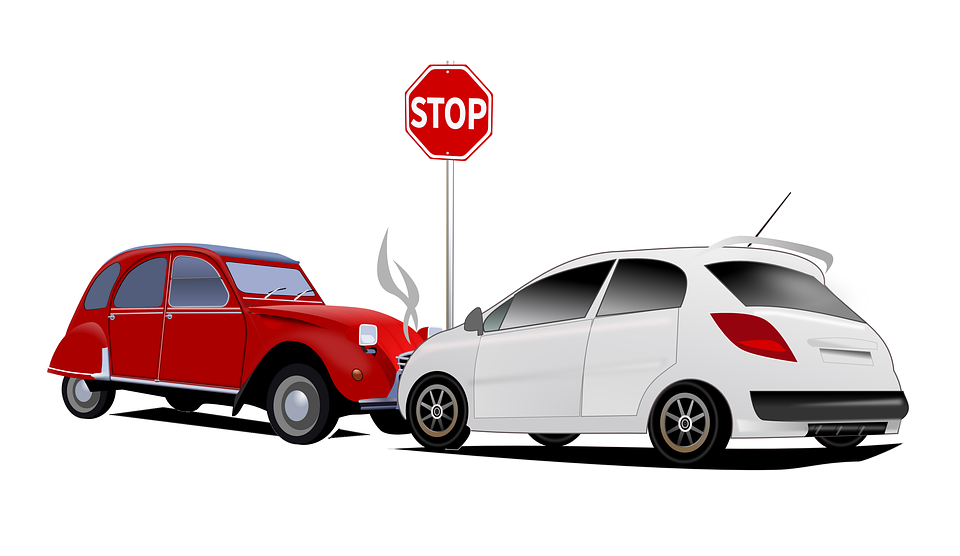
A car accident can be a very traumatic experience. Not only did your car get damaged, but you’ve experienced a potentially life-threatening situation and you might have suffered injuries as well. As if that’s not enough, you’re most likely now dealing with the financial strain that comes with all of this. Making sure you’re taking care of your health is obviously the number one priority. However, going back to normal also means being able to continue with the lifestyle you previously led – which means getting your personal finances back in order as well. This is why it’s important to be aware of the key steps to the financial recovery process following a car accident.
Table of Contents
1. Asses The Situation And Gather Documentation
The first step to financial recovery starts pretty early on. While car accident cases are different in every situation, it’s likely that you’ll be dealing with some or all of the following: car repairs, medical expenses, lost income, property damage, and car rental costs. It’s important to keep track of all of this and to have an idea of what the total cost is. You’ll also want to make sure you have any and all documentation related to the accident. This includes medical bills, vehicle repair bills, and any other associated bills. Make sure to keep track of all correspondence with insurance companies and healthcare providers, as well as receipts and invoices. Lost wages should also be documented, and you can use pay stubs or a letter from your employer to prove this.
2. Notify Your Insurance Company
One of the first things you should do following a car accident is notify your insurance company. They’ll want to know what happened and they’ll start the claims process. In order to do this, you’ll most likely need to provide them with your social security number, your driver’s license number, and the policy numbers for any vehicles involved in the accident. You should also have your insurance company’s contact information on hand. It’s important to cooperate with them and to provide any and all documentation they request. Keep in mind that you’re not required to use your own insurance company’s recommended repair shop or doctor. You have the right to choose who you want to work with.
3. Work With An Attorney
If you’ve suffered any injuries as a result of the car accident, you’ll want to work with an attorney to file a personal injury claim. This is a legal process that can help you recover damages for your injuries. It’s important to note that not all accidents will result in a personal injury claim. Your attorney will be able to advise you on whether or not this is the best course of action for you. In general, in order to qualify for a personal injury claim, you’ll need to show that the other driver was negligent and that your injuries, emotional suffering, and car damages were a direct result of the accident.
4. Understand Your Rights And Responsibilities
As a driver involved in a car accident, it’s important to understand your rights and responsibilities. Just like you have an obligation to know the law as a citizen, you also have an obligation to know the law as a driver. In particular, make sure you know your state’s car accident laws. Knowing what you can and can’t do will help to avoid any potential legal issues down the road. In general, you have the right to:
- File a claim with your insurance company.
- Get medical treatment for your injuries.
- Get a rental car while your car is being repaired.
- Get compensated for your property damage.
- Get compensated for your injuries.
- Pursue a personal injury claim if you’ve suffered significant injuries.
You also have the responsibility to:
- Cooperate with your insurance company.
- Notify your insurance company as soon as possible following the accident.
- Submit all documentation they request.
- Notify the other driver’s insurance company of the accident.
- Avoid making any statements that could be used against you in court.
- Get legal help if you’re considering filing a personal injury claim.
5. Monitor Your Case Progress
Throughout the claims process, it’s important to monitor the progress of your case. This means keeping track of all conversations with your insurance company and healthcare providers, as well as any paperwork you’ve submitted. If you have any questions or concerns, be sure to address them with your insurance company or attorney. It’s also important to stay patient and to allow the legal process to play out. Car accidents can be very traumatic, and the financial recovery process can be difficult. It’s normal to feel impatient and to want to rush through the process. However, it’s important to remember that taking your time and doing things correctly is the best way to ensure a successful outcome.
6. Settle Any Outstanding Debts
If you’ve suffered any injuries as a result of the car accident, you may have some outstanding debts. As mentioned before, this could include medical bills, car repairs, and/or personal injury damages. As soon as you get the compensation for your car accident, it’s important to pay off any outstanding debts. This will help to prevent any legal issues and will also make it easier for you to move on from the accident. It will also go towards improving your credit score, which may have been affected by the accident. The less debt you have, the easier it will be to live a normal life after the accident. Of course, if you are still undergoing treatment that isn’t covered by your insurance, you’ll need to make arrangements to pay for that treatment first. That said, it’s important to have a clear budget and to make a plan to pay off any outstanding debts as soon as possible.
7. Check For Additional Resources
There are a number of resources available to help you during the financial recovery process following a car accident. Your insurance company may provide some assistance, as may your state’s department of motor vehicles. There are also numerous private organizations that offer help, such as the American Automobile Association (AAA) and the National Association of Independent Insurers (NAII). The best way to find out about these resources is to do a quick online search. That said, it’s important to be aware that not all of these organizations are created equal. Some are more helpful than others, so it’s important to do your research before choosing one.
Car accidents can be very traumatic, both physically and emotionally. The financial recovery process can be difficult, but it’s important to remember that there are a number of resources available to help you. By knowing your rights and responsibilities, as well as understanding the process, you’ll be in a better position to recover financially from your car accident.





